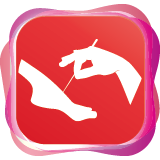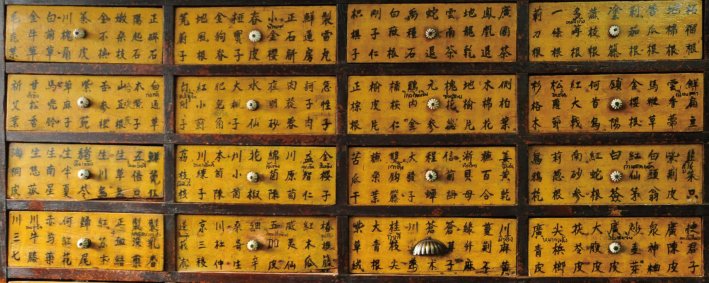 |
CCCH9029 China: Culture, State and Society
|
Course Description
This course introduces ideas and practices of healing arts in Traditional Chinese Medicine (TCM) through a critical exploration of ancient Chinese philosophy and history of TCM in its dynamic formation and development. The course seeks to enhance students’ interests in ancient medical practice from modern science and enriches students’ knowledge of key ideas and methods of healing arts in medical sciences, philosophy, religion, and literature.
The course also engages them in cross-cultural inquiry by contrasting or connecting TCM with science and modern medicine. In light of influential theories in TCM, such as “陰陽五行” (Yin-Yang and five elements), “天人相應” (correlation between man and nature), “原氣論” Qi (vital energy) and “藥食同源” (the same origin of herbs and food), a number of key concepts in TCM will be explained. Comparison of Chinese medicine with modern medicine will be involved and there will also be debates on controversial cases to stimulate student discussion. First-hand experience of TCM will be demonstrated with student participation and a cross-cultural discussion on the vital interactions between TCM and modern medicine will be held in the class.
[There are two compulsory visits and one of them (School of Chinese Medicine) will be scheduled during Reading Week.]

Course Learning Outcomes
On completing the course, students will be able to:
- Explicate the philosophy and key concepts in traditional Chinese medicine (TCM).
- Analyze ideas of “the holism of man and nature” and “same origin of herbs and food” that influence TCM practice, Chinese cultural tradition, and the lifestyle from past to present.
- Compare different origins of Chinese and modern medicine and evaluate advantages and limitations of both.
- Apply TCM knowledge learnt into daily life and critically consider the prevention and treatment of common diseases.
Offer Semester and Day of Teaching
First semester (Wed)
Study Load
| Activities | Number of hours |
| Lectures | 24 |
| Tutorials | 8 |
| Fieldwork / Visits | 12 |
| Reading / Self-study | 58 |
| Assessment: Presentation (incl preparation) | 8 |
| Assessment: Essay / Reflective writing | 40 |
| Total: | 150 |
Assessment: 100% coursework
| Assessment Tasks | Weighting |
| Tutorials | 20 |
| Presentation | 20 |
| Short essay | 25 |
| Group project | 25 |
| Field trip | 10 |
Required Reading
- Hu, J., & Liu, B. (2012). The basic theory, diagnostic, and therapeutic system of traditional Chinese medicine and the challenges they bring to statistics. Statistics in Medicine, 31(7), 602-605. From https://doi-org.eproxy.lib.hku.hk/10.1002/sim.4409
- Sheikh, A. A., & Sheikh, K. S. (Eds.). (1989). Eastern and western approaches to healing: Ancient wisdom and modern knowledge. New York: Wiley.
- Sun, D., Li, S., Liu, Y., Zhang, Y., Mei, R., & Yang, M. (2013). Differences in the origin of philosophy between Chinese medicine and western medicine: Exploration of the holistic advantages of Chinese medicine. Chinese Journal of Integrative Medicine, 19(9), 706-711. From https://doi-org.eproxy.lib.hku.hk/10.1007/s11655-013-1435-5
- Tai, S., & Sun, F. (2014). Diseases and Their Etiologies. In S. Xutian, S. Tai & C. Yuan (Eds.), Handbook of Traditional Chinese Medicine (pp.99–117). Singapore: World Scientific Publishing Co. From https://doi-org.eproxy.lib.hku.hk/10.1142/9789814293839_0007
- Wang, Z., Chen, P., & Xie, P. (1999). History and development of traditional Chinese medicine. Beijing: Science Press; Amsterdam: IOS Press; Tokyo: Ohmsha.
- Zhang, Z., Wang, X., & McAlonan, G. (2012). Neural Acupuncture Unit: A New Concept for Interpreting Effects and Mechanisms of Acupuncture. Evidence-Based Complementary and Alternative Medicine, 2012, Article ID 429412. From http://dx.doi.org.eproxy.lib.hku.hk/10.1155/2012/429412
Course Co-ordinator and Teacher(s)
| Course Co-ordinator | Contact |
| Professor Z.J. Zhang School of Chinese Medicine, Li Ka Shing Faculty of Medicine |
Tel: 3917 6445 Email: zhangzj@hku.hk |
| Teacher(s) | Contact |
| Professor Z.J. Zhang School of Chinese Medicine, Li Ka Shing Faculty of Medicine |
Tel: 3917 6445 Email: zhangzj@hku.hk |
| Professor J.G. Shen School of Chinese Medicine, Li Ka Shing Faculty of Medicine |
Tel: 3917 6429 Email: shenjg@hku.hk |

